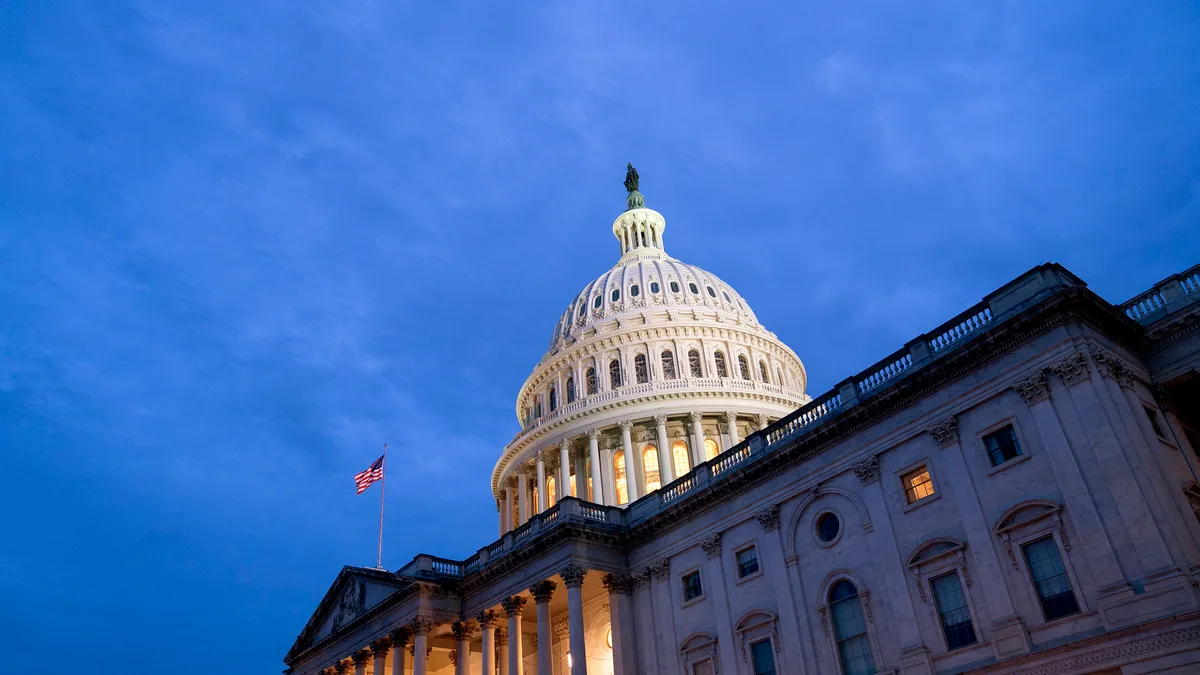Congress is unlikely to raise the statutory corporate tax rate much above 25%, because that’s as high as Sen. Joe Manchin (D-W.Va.) will likely go, and his vote is key to holding the Democrats together in the Senate, Diana Deem, director of congressional and political affairs at the American Institute of CPAs, said last week at an AICPA virtual CFO conference.
“In an evenly split Senate, his desires are paramount,” Deem said.
House and Senate leaders will want to use the budget reconciliation process to pass the tax and funding measures to pay for the Biden administration’s expansive legislative agenda, which includes some $2 trillion for infrastructure improvements and other long-term investments.
The Biden administration proposed raising the tax rate from 21% to 28% and also imposing a 15% tax on book income for some companies along with changes that could increase taxes on companies’ foreign operations.
Budget reconciliation is the preferred way to move the big spending bills because it only requires a simple majority vote in the Senate rather than a filibuster-proof two-thirds vote. But to succeed on that strategy, the bill will probably need to be ready before the Senate breaks for its August recess.
“Count on [Manchin] conceding to reconciliation as long as the corporate tax rate doesn’t go much above 25%,” she said.
ESG focus
Congress is also likely to weigh in on another Biden priority — putting teeth behind corporate environmental, social and governance (ESG) reporting, a movement for companies to showcase their public-interest values that have been voluntary up to this point.
The House Financial Services Committee has already passed a bill that would mandate the Securities and Exchange Commission (SEC) to make ESG reporting a requirement, a move the SEC started preparing for right after Biden’s election when Allison Herren Lee was the agency’s acting chair.
Now that long-time finance official Gary Gensler has been confirmed as SEC chair, the agency is expected to move decisively in that direction.
“We can expect to see something soon, because public comments on the SEC’s proposed approach are due in June, and the SEC has promised quick action,” she said.
Congress is expected to split along partisan lines on the issue; at Gensler’s confirmation hearing in April, Republicans generally opposed requiring ESG reporting while Democrats generally favored it.
“Needless to say, this is a very politically charged issue,” she said.
Remote employees
A key tax issue that will likely get attention this year applies to what Congress is calling the new mobile workforce.
Supporters are pressing for the federal government to create a single standard so companies, as they look ahead to a future in which more of their employees work off-site, only have to comply with one set of tax rules. Right now, companies face inconsistent tax and withholding rules, depending on which states remote employees live in.
The issue has been in the news because of the pandemic and some lawmakers have seen this as something they can work together on in a bipartisan way.
A mobile workforce bill introduced last year and again this year by senators John Thune (R-S.D.) and Sherrod Brown (D-Ohio) was initially included in the reconciliation bill Congress passed in February to pay for the Biden administration’s stimulus plan but was removed before passage.
Despite the setback, there’s reason to believe it can pass in both the House, which passed it once before, and the Senate, Deem said.
“So, we’re looking forward to having this language included in a new reconciliation package, so all eyes will now turn to that package,” she said.
Should it pass, it will be a win for accounting teams, because it will simplify state tax compliance as companies’ workforce becomes increasingly distributed.














